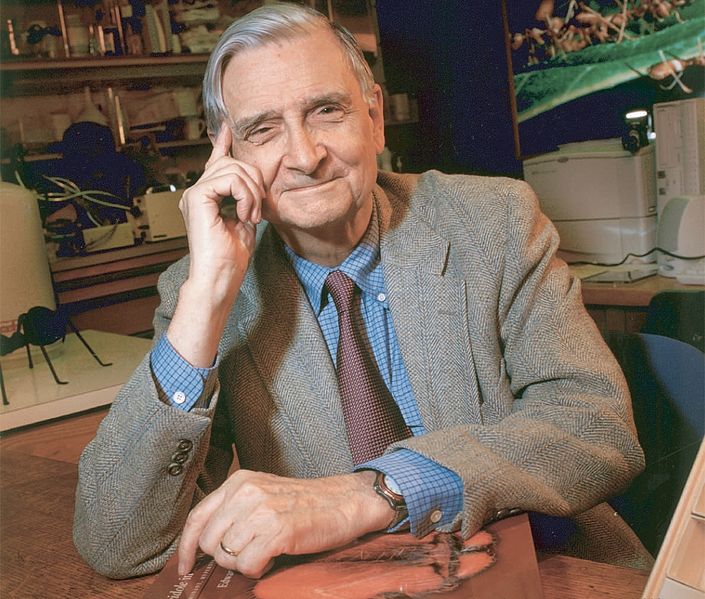News //
Written by Professor Peter K. L. Ng

2021 ended with sadness as the museum lost one of its old friends and supporter – the venerated biologist Ed Wilson. He passed away on 26th December at the age of 92, and with it, also ends an era. E. O. Wilson, the quintessential Harvard don whose academic achievements are legend, has passed on. Known as one of the modern pioneers for biodiversity science, “E.O.” as many called him, was good friends with NUS’s own entomologist, Dennis “Paddy” Murphy, who passed away 2 years ago, with both men sharing a passion for ants which transcended time and space. It was through Paddy that I first knew Ed in the early 1990s. They were wonderful men to learn from – men to which science was not a mission or an outcome, but a never-ending journey of discovery. They shared this deep-seated curiosity for the natural world – the need to know and understand how our natural world worked. In 1996, as we evolved our own biodiversity organ in the museum, the Raffles Bulletin of Zoology (a journal which Paddy resurrected in 1988 and handed to me to manage), I asked Ed if he would be so kind as to support us more by being an editorial board member. I still have his kind letter saying “YES” – he was happy to lend his considerable gravitas to a young journal steeped in history but trying to move to greater heights. And Ed was ever supportive of museums and the old science of taxonomy. He, more than any others perhaps, knew that for biodiversity science and conservation to progress, foundational sciences like taxonomy and systematics needed to be pursued regardless.
Beyond discovery and species, Ed was also ever supportive of training new blood to counter the challenges of an “anthropogenically challenged planet”. In 2010, as NUS was putting together its Bachelor of Environmental Science (BES) program, we needed to have industry captains and international luminaries to be on our side to get it started. On any off chance, I asked Ed if he would be so kind to support us. He was and wrote us a wonderful paragraph stating in no uncertain terms, the importance of training good environmental scholars!
We have lost Ed now as well, and with his passing, we lose one of the greatest biologists of many a generation. I am nevertheless grateful, that through all his many accomplishments, he spent time and energy to help the museum and biodiversity scientists in Singapore reach for greater heights as well. I am glad to have been part of this history. Goodbye Ed.
Peter K. L. Ng
Head
Lee Kong Chian Natural History Museum